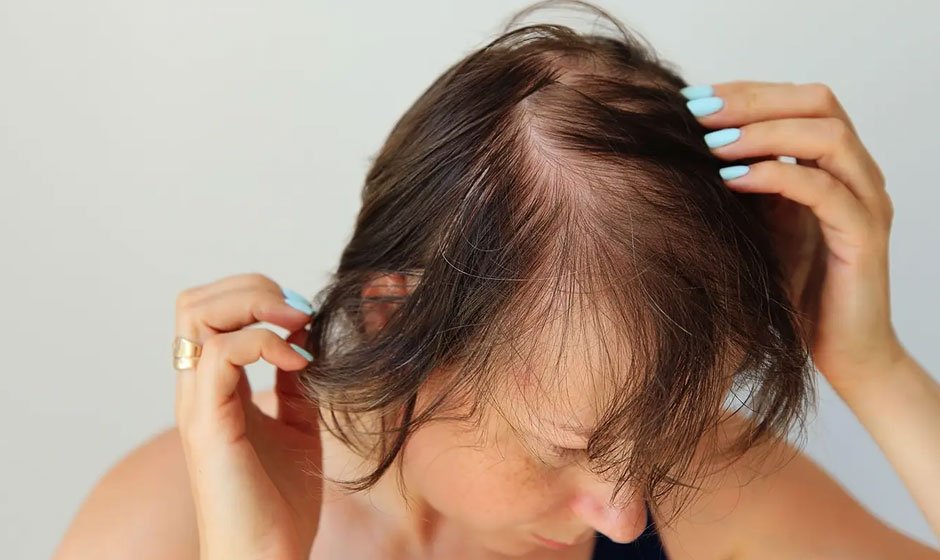The Effects of Long-Term Stress: Hair Loss Edition

Stress is so deeply entwined with a number of aspects of modern life; it really does feel unavoidable at times. However, experiencing chronic stress can actually be really bad for you. The build-up of stress hormones in the body can manifest in several ways as both psychical and mental symptoms. Chronic stress has been linked to insomnia, depression, anxiety, digestive trouble and even hair loss. The good news is that if any of your symptoms are stress-related, they can usually be reversed. If stress is making you lose your hair, then your hair follicles are likely undamaged, which means you can definitely turn things around. Keep reading to learn more.
Managing Your Stress
Obviously, if you want to slow the rate of hair loss as well as just generally improve your health and well-being, then you need to work on managing your stress. If you try to treat the hair loss without also addressing the stress, then you aren’t going to get very far. You need to go to the source. It is unlikely that you are going to be able to remove the source of stress from your life entirely, so you are going to need to find ways to help you to relieve stress. This could be implementing a few self-care techniques, or taking up a hobby, or trying mindfulness activities or even just trying to exercise more. Find something that works for you.
Lifestyle Changes
It is also worth thinking about making a few lifestyle changes. If you don’t get out of the house much or you live a stagnant lifestyle, then this could exacerbate any health issues that you might be experiencing, and the same can be said for your diet and nutrition. Exercising regularly is good for you anyway, but, as mentioned above, it can actually help to increase the levels of dopamine as well as releasing endorphins which can help the body to cope with stress. In terms of diet, there are a few vitamins and minerals that have been linked to healthy hair and skin, like vitamins B, C and E. Making sure that you get enough water is also important because it powers the body. These changes can help your body to cope with stress and slow or even halt your stress-related hair loss.
Treating Hair Loss
As well as doing your best to mitigate some of the stress that you are feeling, you can also try to tackle the hair loss head-on (pardon the pun). Taking a more proactive approach can help to encourage your hair to grow back more quickly. There are several approaches to hair loss that you could try. There are topical treatments that you apply to area to encourage the follicles to get working and produce more hair. These treatments often take some time to produce results, but they are pretty non-invasive. You can find some really great hair loss plans on Oxford Online Pharmacy.
You could also consider topical corticosteroids, which tend to be used to treat different forms of alopecia. You do generally need a doctor’s prescription for them, and they also tend to be used in conjunction with other treatments, so this is something that you should consider. There are also a few home remedies that you might want to try too, like castor oil or other shampoos, conditioners, hair oils and leave-in masks. They are potentially less effective, but if your hair loss is due to stress, then you might not need anything more than this to reverse the effects.
In some instances, your hair loss might be pretty advanced, too advanced to grow back fully, even with your newfound approach to stress management. In these cases, you are likely to need something a little more invasive to treat your hair loss. This could be PRP therapy, drugs or even a hair transplant. PRP therapy is mid-level invasive; blood is taken from a donor site, and it is then separated using a centrifuge. The plasma is then mixed with different chemicals and proteins, which is then injected into the scalp.
Drugs can be used to treat hair loss. They often address hormone imbalances in the body in order to promote new hair growth. However, they can again take some time to get into your system, and it could be a few weeks or months before you see results. Lastly, there are hair transplants. These are pretty invasive, expensive, and the recovery time is longer – that being said, they do tend to provide the best results.
To Conclude
Unfortunately, most stress-related issues tend to be cyclical, the stress causes the issue, which then causes stress, and it goes round and round and round. Stress-related hair loss can be particularly hard to cope with because it can really knock your self-confidence. The best thing that you can do is to address the cause of your stress and try to come up with ways to cope. It also makes sense to try and address the hair loss itself too.



